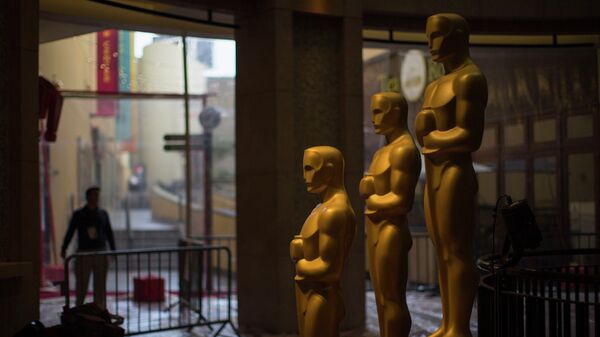The Academy of Motion Picture Arts and Sciences has disqualified Nigeria’s movie from the International Film category, saying it had too much dialogue in English, despite the fact that the official language in Nigeria is… English. According to the academy’s rules, movies submitted in the International Film category should have predominantly non-English dialogue. Lionheart, directed by Genevieve Nnaji, who also stars in the film, has less than 12 minutes of dialogue that is in the Igbo language and the rest of the movie is in English.
Director Genevieve Nnaji took to Twitter to criticise the academy’s decision, saying English serves as a bridge between more than 500 languages that are spoken in Nigeria.
1/1 1/2 Thank you so much @ava❤️.
— Genevieve Nnaji MFR (@GenevieveNnaji1) November 4, 2019
I am the director of Lionheart. This movie represents the way we speak as Nigerians. This includes English which acts as a bridge between the 500+ languages spoken in our country; thereby making us #OneNigeria. @TheAcademy https://t.co/LMfWDDNV3e
2/2 It’s no different to how French connects communities in former French colonies. We did not choose who colonized us. As ever, this film and many like it, is proudly Nigerian. @TheAcademy https://t.co/LMfWDDNV3e
— Genevieve Nnaji MFR (@GenevieveNnaji1) November 4, 2019
Nnaji’s colleague, director Ava DuVernay, also denounced the disqualification, wondering whether it means that the academy is barring the country from competing for the most prestigious movie award.
To @TheAcademy, You disqualified Nigeria’s first-ever submission for Best International Feature because its in English. But English is the official language of Nigeria. Are you barring this country from ever competing for an Oscar in its official language? https://t.co/X3EGb01tPF
— Ava DuVernay (@ava) November 4, 2019
The news also prompted heated debate on social media, with some users saying that it was an unreasonable decision to submit the movie in the International Film category, considering the requirements set by the academy.
It makes complete sense if you read the rules which state it must be predominantly in a language other than English. The fact that you apparently can't understand English doesn't change the rules.
— Lexcat (@Lexcat12) November 5, 2019
But what is wrong with people
— SHUGAR🍬🍯 (@ifeoluw_a) November 5, 2019
The category clearly stated "non English dialogue"
Lionheart is mainly in English and you want it to be qualified?
Na wa o
Other users contended that it was an unfair and cruel ruling, given the fact that the country was colonised by the United Kingdom and gained independence in 1960.
Sigh. Trust white people to force you to learn their language, make it your official language and then punish you for using the language.
— Marve Micheal (@just_marve) November 4, 2019
Sigh
How do you punish someone for using a language you forced them to learn pic.twitter.com/QlYy7yPvu1
— Afrodite💖 (@Afrodite214) November 5, 2019
Many users praised the movie, but stressed that Nigerian movies should represent the country’s culture and hence should feature dialogues in its major languages.
With all due respect, how we speak in Nigeria is Igbo, efik, Hausa, Yoruba etc.
— Chiemeka Sidney (@iAmCsezar) November 5, 2019
The British may've colonised us but dey didn't mk English our identity. Anything representing Nigeria must be in a language &culture indigenous 2any of the tribes in Nig. Great movie but ...
Still others said that making movies in other languages will be quite tricky, as more than 500 languages are spoken in Nigeria.
My take is the academy always expect the foreign countries to use their local dialect whereby creating the impression that only Hollywood is better with English movies.
— VERIFIED homie (@Homiebishop) November 5, 2019
Making a good movie like Lionheart 90% local language will be hard for marketers with more than 500 Lang in Nig
Lionheart tells the story of a woman who had to take charge of a company after her father stepped down because of health issues. It debuted at the Toronto International Film Festival in 2018 and is currently available on Netflix.

